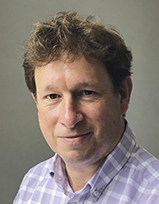Born in Essex, the late Bramwell Tovey studied at the Royal Academy of Music and University of London. His early posts included those of music director of Scottish Ballet and principal conductor of Sadler’s Wells Royal Ballet before, in 1989, he crossed the Atlantic to become music director of the Winnipeg Symphony Orchestra. He then held the post of music director of the Vancouver Symphony Orchestra for 18 years before joining the BBC Concert Orchestra as principal conductor in 2018.
'My family were all musicians. My parents sang in local choral societies, and a lot of members of my family played in the Salvation Army band, including me – I started off on the baritone and then played pretty much all the instruments at one stage or another. I actually began piano lessons first and I also grew up improvising as well as reading music, which later became a very useful skill playing Bach continuo and jazz. I also started playing double bass in a youth orchestra when I was about 11, but always regarded myself principally as a pianist.
When I was around 18, I went with a friend to hear Bernard Haitink conducting the London Philharmonic in Mahler’s Third Symphony at the BBC Proms. I was a regular Prommer, heading up from Gants Hill on the Central Line to the Royal Albert Hall. This was my first experience of Mahler and I remember, from the horn opening, how I found it so enthralling. After that I tried to catch Haitink performances of Mahler as often as I could.
Shortly after I left the Royal Academy [one of the best music colleges and conservatoires in the world], I became music director of the Scottish Ballet, and while I was there the mezzo Dame Janet Baker was invited to come and sing Mahler’s Rückert-Lieder with us in a gala concert – I had to re-orchestrate it for a small enough ensemble to fit in the Theatre Royal pit. It was the first time I had worked with an artist of that level. Her line, intonation and overall quality were so uplifting and, of course, the poetry and the songs are full of the most extraordinary expression. And she was so gracious too.
One of the biggest days of my life was when I met Leonard Bernstein in 1986. When Lukas Foss cancelled at last minute, a conductor was needed for the opening night of the LSO’s Bernstein Festival at the Barbican. I didn’t know half the pieces, but I took it on as it was a great opportunity. During the rehearsal, there was a commotion, as in walked the man himself. He was shorter than I expected, but he had charisma to burn and, of course, a cigarette. He invited me to go with him to Tanglewood, where I watched him rehearse and give masterclasses. I think the music that really sums him up is Candide. There’s so much in it that is such fun: humour, operetta, so much great singing. As a score, it’s more revolutionary in many ways than West Side Story.
Another musician I’ve always admired is André Previn, who was doing his Music Night programmes on TV with the LSO [one of the best orchestras in the world] when I was a student. He was a slightly unorthodox conductor, but a brilliant musician who did a great deal for English music, particularly Walton. He is also a beautiful pianist, not least in Mozart. A few years ago he recorded an album called Alone which I keep coming back to. It’s just a collection of ballads and so not Previn at his virtuoso best, but I find myself mesmerised by the chord changes, the voicings and the gentle nature of it. It’s a very intimate recording and the sound that he makes on the piano is glorious.
I’m a huge fan of Harrison Birtwistle. I think he’s an absolute genius. Over the years I’ve conducted various pieces of his, and every time I do, the more profoundly I’m affected by his music – by the power of it and by the brilliance of the writing. When you first open a Birtwistle score, it can be completely intimidating; these handwritten scores that have spidery writing. But when everything is properly organised and tuned and balanced, it sounds so clear. I love his Panic, written for the Last Night of the Proms in 1995. When I performed it with saxophonist Amy Dickson and the Melbourne Symphony Orchestra, it brought the house down.
Interview by Jeremy Pound
